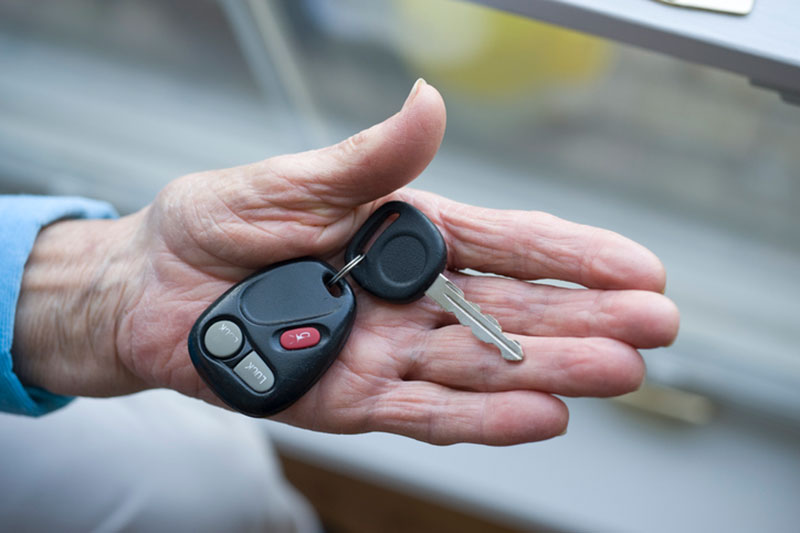
Learn how senior care helps older adults remain independent when driving is no longer an option.
It is a conversation no one wants to have with senior parents, but one that will likely be required at some point. To be able to drive wherever and whenever we decide is a key component to our feeling of independence, yet as we grow older, operating a vehicle can become hazardous for a variety of reasons: poor vision, decreased reflex and response times, cognitive problems, and more. If you are starting to have worries about a senior loved one’s capacity to continue to drive safely, it is time to bring up the idea of giving up driving. Luckily, senior care helps older adults who are no longer able to drive safely.
How Can Determine If It’s Time for an Older Adult to Quit Driving?
There are a few red flags to watch out for that indicate the need for a senior to stop driving, including:
- Getting lost on familiar driving routes
- Missing traffic signals or signs
- Not yielding or cutting off other drivers
- Making wider turns than necessary
- Not staying between the lines
- Coming across as sleepy or not alert
- Experiencing difficulty with judging distances
- Getting frustrated, angry, or agitated
- Not using turn signals or mirrors appropriately
How Does Senior Care Help Older Adults When Safe Driving Is No Longer an Option?
Most importantly, try to avoid correcting or criticizing the older adult’s mistakes while they are driving, as this can lead to increased dangerous behaviors. When the car is parked, calmly talk about specific instances of concern that you witnessed as a starting point to the larger discussion concerning the need for the person to quit driving.
The following tips are a good way to proceed with the conversation to make sure you will be heard and taken seriously. Use the conversation to lower the senior’s stress and to provide a solution to empower the older adult to maintain independence.
Key Points to Keep in Mind:
- Employ help from others that the senior knows and trusts, either in supplying their own examples of concerns or in joining you for the conversation.
- Avoid shaming or blaming the person.
- Keep your temperament relaxed and supportive so that you do not come across as angry.
- Use specific instances of troubling actions.
- Let the senior know you are in this together, and that collectively you’ll be able to come up with an answer that ensures safety for the senior as well as other drivers and pedestrians.
- Expect to see resistance and defensiveness, and that it could take more than one conversation.
If the senior remains insistent about not stopping driving, schedule a checkup and consultation with the doctor. There may be medication side effects, issues with vision, or other health-related reasons behind driving issues that may be corrected; or the doctor may have more influence in encouraging the person to give up the keys.
How Can an Older Adult Stay Independent Without Being Able to Drive?
Thankfully, there is a simple answer that enables an older adult to get around as they wish: a professional Topeka dementia and home care expert from Grace Home Care.
Our care providers are available to offer transportation and accompaniment whenever and wherever a senior might need to go, including:
- Doctor appointments and procedures
- Shopping and running errands
- Social outings with friends
- Going out to lunch or for a walk in the park
- Hair and nail appointments
- Exercise or any other classes
- Even vacations or longer-destination outings
The best part? A caregiver can provide friendly companionship and conversations that make any journey so much more enjoyable than going alone!
Contact our Topeka dementia care and home care experts at 785-286-2273 to ask about our transportation services for seniors and help a senior you love live their best life, safely and happily.
